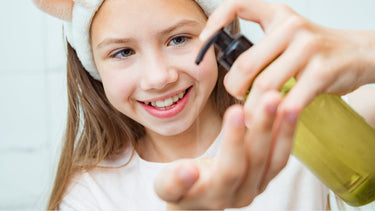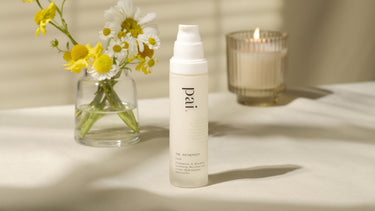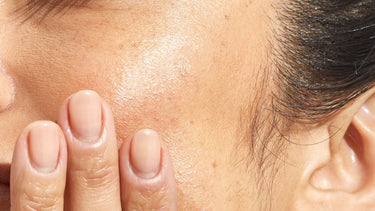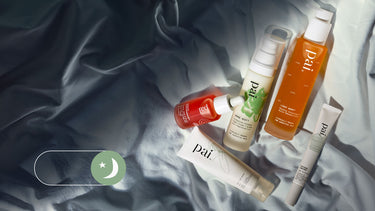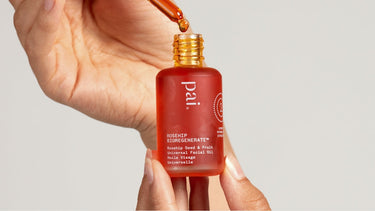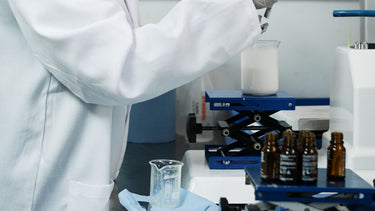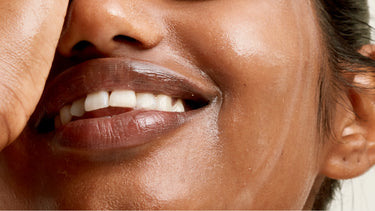There’s been a lot of talk about retouching, airbrushing, face-tuning and photo editing of late. And while influencers have taken the brunt of the criticism in this space, there’s no denying that our industry as a whole has played its part over the years, showing skin, faces and bodies that looked – to use that hackneyed beauty world term – ‘flawless’.
So we thought we’d share a reminder that at Pai, we have a strict no-retouch policy for model images. We never have, never will. That’s a promise.
So what do we mean by retouched imagery? Take skincare brands for example. Photo editing can mean anything. It can mean smoothing the skin’s texture to make it look consistent and even. It could mean slimming down a face. Erasing wrinkles, scars, birth marks or zits. But we believe none of that should be erased. We shoot humans, with human skin and human feelings.
There are so many reasons why we don’t retouch photographs. Firstly, we celebrate the people we feature in our imagery. They represent our products and the people they’re designed to help. So their skin should be shown exactly as it is.

Secondly, there are the truly impossible standards that retouched images set for society. We don’t want ourselves, our friends or our loved ones believing that everyone else has seemingly ‘perfect’ skin. That’s just not true. Especially when it comes to sensitive skin – a rollercoaster we’ve ridden and know the highs and lows of all too well.
We all experience good and bad days. Many of us experience stress, hormonal changes and fluctuations. Nobody’s skin looks its best or most chilled every day. But if you were to look at advertisements, social media or indeed many brands’ websites, you wouldn’t know it.
We’ve (hopefully) skipped past the decades of teenagers putting toothpaste on zits. But now we’re seeing young – very young – people concealing, contouring and filtering their faces beyond recognition.
Our friends at Cult Beauty published a sobering stat in their open letter against retouching recently – which said that 80% of girls had already used a retouching app or filter to change how they looked in their photos by age 13. That is a phenomenon we wish to play no part in.
When a creator or influencer posts an ad, they must declare so in the social media caption. But declaring the authenticity of the visual content shown? Until recently, this has been a totally unregulated arena.
In a move to protect its citizens from the mental health implications of unrealistic, edited imagery, the Norwegian government passed a law in 2021 requiring sponsored social media posts by brands and influencers to disclose any editing on their photos using a ministry-approved label.

And the UK will hopefully follow suit too, following the proposed Digitally Altered Body Images Bill in 2022. This proposal is still in progress, but mirrors Norway’s requirement to self-declare photo editing from its advertisers, broadcasters and publishers.
Retouching images is clearly problematic. Not just for selling products – that it can do in abundance, albeit unethically. But it creates a narrative that is so far from honesty and authenticity, that it makes everyone feel like an outsider. For looking ‘flawed’. For looking our age. For being our real weight, or our real skin tone.
Editing this – be it intentionally or not – makes all those things that we are, feel wrong. Shameful. Hard to talk about. The exact antithesis to Pai, where our mission is to restore skin confidence.
We celebrate open and honest dialogue. We celebrate asking for help if you need it. And we celebrate everyone – and their skin – exactly as they are.





























